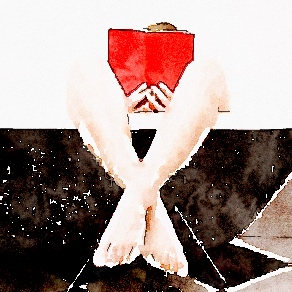Let’s start today’s post with the one thing we should never start a piece of writing with: a cliché. Today’s cliché is that life is full of choices. None of us can avoid them, although some people make a damn good effort to as they’re painfully aware that by choosing something, they will miss out on something else. To these people the most of awful thing about choice is the very fact that they have to make one; that maybe none of the alternatives are any good only comes distant second.
To these people then the most fateful word in the world is:
Choice
When it comes to choices in literature, Antigone by Sophocles of course offers itself up for examples of moral choices on a positively indecent scale but I wouldn’t want to spoil your enjoyment in reading it. Besides, you haven’t heard from Herodotus for a while (this is where you all stop reading!) and he too loaded his Histories with plenty of fateful choices. There was, for example, the juicy case of Gyges, the favourite bodyguard of King Candaules and the king’s wife… but we’ll leave that for another time. Instead we’ll read the very end of The Histories, the last chapter of Book Nine, in which…
…Herodotus tells the story that after the Persians rebelled against and defeated their rulers, the Medes, they felt that it would be a good idea to leave their own rather small and poor homeland and settle somewhere much nicer. They said to their leader, Cyrus:
“Seeing that Zeus grants lordship to the Persian people, and to you, Cyrus, among them, let us, after reducing Astyages, depart from the little and rugged land which we possess and occupy one that is better. There are many such lands on our borders, and many further distant. If we take one of these, we will all have more reasons for renown. It is only reasonable that a ruling people should act in this way, for when will we have a better opportunity than now, when we are lords of so many men and of all Asia?”
Cyrus heard them, and found nothing to marvel at in their design; “Go ahead and do this,” he said; “but if you do so, be prepared no longer to be rulers but rather subjects. Soft lands breed soft men; wondrous fruits of the earth and valiant warriors grow not from the same soil.”
The Persians now realized that Cyrus reasoned better than they, and they departed, choosing rather to be rulers on a barren mountain side than dwelling in tilled valleys to be slaves to others.
Herodotus IX.122
As Robin Osborne wrote in his essay The Paeonians (in Reading Herodotus: A Study of the Logoi in Book 5 of Herodotus’ Histories, edited by Elizabeth Irwin and Emily Greenwood):
“Moments of choice in Herodotus are never trivial… With Cyrus’ final apophthegm that ‘soft lands breed soft men’ (9.122.3) Herodotus leaves his reader reflecting on the enormous implications of choices and of the difficulty of measuring up advantages and disadvantages.”
No stress the next time you’ve got to choose…!
You may also like: ⇒ Best Stories of Herodotus of Herodotus (And Why You're Going to Read Them) ⇒ Five Books You Shouldn't Read ⇒ Short Biography of a Boring Author


The mountains are only barren to the ones in the field.
LikeLike
How very true! 🙂 My native country is set on a fertile floodplain and to me nothing surpasses the beauty of the rich gold of the ripe wheat fields, the vivid green of the cornfields and the blood red poppies. And let’s not forget the sunflower fields and the poplars by the country roads. 🙂 To me the treeless hills of the famous Lake District are barren and soulless… On the other hand, my English husband thinks the hills of the Lake District are marvellously beautiful and nothing is more boring than wheat or corn fields… and poppies to him mean the battlefields of World War I!
LikeLike
Guess that would also mean “he who sits on the soft sofa” becomes soft himself. That makes sense.
LikeLiked by 1 person
Pingback: The END GAME: Why the WEST is in DECLINE | Free Kentucky